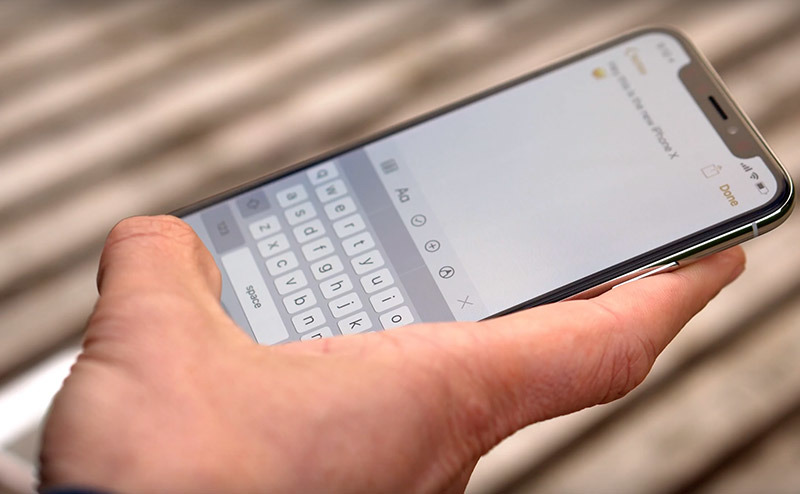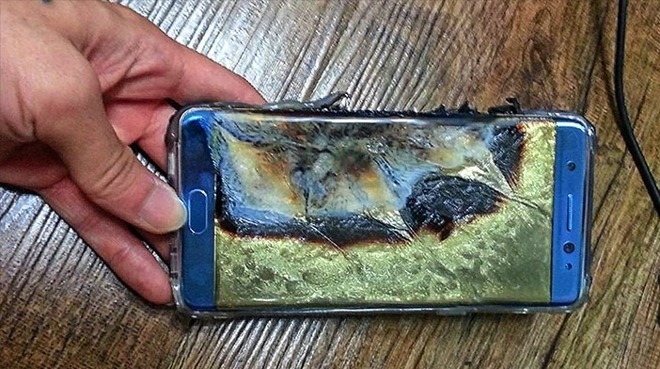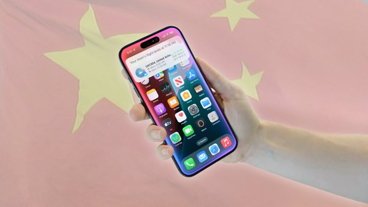Apple is the only PC or smartphone vendor to have full control over the user experience it provides to its customers, thanks to its positioning as an integrated platform vendor. This is a key— often overlooked— advantage for the company that is driving customer satisfaction and trust as well as attracting serious attention from the enterprise at a time when Google's Android is doing neither one.
Apple's unique positioning not only gives the company unmatched flexibility in broadly, rapidly rolling out ambitious new features like ARKit, APFS or TrueDepth's Face ID, but also isolates the company from flaws in vendor components, because Apple can work around design errors (like Intel's Meltdown), deficiencies (like Intel's mobile modems that are a step behind Qualcomm's) and the constraints of physics (the fact that batteries wear out).
Over the last quarter, Apple has been portrayed as bedeviled by production issues with iPhone X's TrueDepth cameras, demonized over its battery life optimization management, and— most recently— targeted as a platform vendor blindsided by the Meltdown and Spectre chip design flaws. In reality however, these problems are actually demonstrations of Apple's powerful position as a value-added integrator of third-party technologies.
Disparagement of Apple's huge platform advantage
Virtually every component in PCs or mobile devices carries its own baggage of errata, flaws, deficiencies and other quality issues. For Apple's critics, any discovered flaw in its suppliers' memory, processors, connectivity, cameras or in any other respect is regaled as a narrative of error, crisis and shame, even though Apple has the power to quickly and effectively address these in a way that users rarely even need to notice. Apple has a long history of solving issues— virtually invisibly— for its customers.
Yet every year, there have been tales of "disastrous, scandalous" behavior from Apple, ranging from the idea that iPhone 6's case could be bent by a man with strong hands to iPhone 7 having internal variations of its mobile modem that slightly affected the peak throughput one could expect when transferring data, to the idea this year that various older iPhone models are slowing down as their batteries wear out— despite this being a purposeful step to extend their usable life prior to a battery replacement, and was announced by Apple itself, rather than being discovered as a mistake by outsiders.
One could spend time factually outlining that all of these stories were overblown sensationalism, or one could simply compare how Apple's grossly exaggerated "flaws" pale in comparison to the far more serious problems of its competitors over the same period: products that were literally bursting into flames on airplanes, shutting down and failing to charge, burning through their displays, spying on users and opening up to well-known vulnerabilities that will likely never be patched.
Android, Galaxy aspire to be real platforms but really are just brands
None of the various Android licensees are raked over the coals for suffering from bad components and other discovered flaws the way Apple is. And on top of that, the much wider and deeper problems that plague Android phones are rarely addressed by their vendors.
Even Google itself, which is regularly credited with "having" all of Android's market share, is almost never tasked to account for the problems within the "platform" it presides over. Google's engineering itself has caused— but in many cases has not bothered to fix— OS problems for its Android licensees. Samsung's very real culpability (based on rushed engineering and incompetent quality assurance) was down-pedaled and minimized by the same media sources that attack Apple over nothingburgers
Even during the most egregious smartphone explosion crisis of Galaxy phone batteries last year, Samsung's very real culpability (based on rushed engineering and incompetent quality assurance) was down-pedaled and minimized by the same media sources that attack Apple over nothingburgers.
Samsung's Galaxy battery issues were even passed off as being an issue with Samsung's battery subsidiary (not the Samsung Galaxy makers!) as if the company is so large that there's no place the buck can ever stop.
Like Google, Samsung's smartphone brand is regularly credited for everything the entire Samsung Electronics conglomerate does (including building displays and chips for Apple) but the company's flaws, mistakes, design errors, sloppy engineering— and even the criminal conduct of its executives— is brushed under the table as being irrelevant to Samsung's Galaxy brand.
Very low expectations for Android say a lot
The most recent example of grading Android on a Neanderthal curve and holding Apple up to Einstein expectations is the half story of children's electronics addiction that somehow only affects iOS— much like the previous half-stories told by everyone from New York Times charlatans to New York Times Pulitzer Prize winners of how Apple is the only company building products in factories, or with labor, or using a supply chain. The rampant outrage-mongering targeting Apple is so facile and basic in its cartoonishness that it actually tells a story— in negative space— of the competence girding iOS and macOS development
The rampant outrage-mongering targeting Apple is so facile and basic in its cartoonishness that it actually tells a story— in negative space— of the competence girding iOS and macOS development. No other mobile computing platforms are even remotely close to Apple's in actively managing threats and solving issues that arise.
Apple not only deals with the errata in Intel chips and problems with Samsung displays, but it also addresses societal issues ranging from strict rules for its manufacturers and supply chain regarding workers rights and environmental protections; to green investments in clean energy and climate change awareness to parental controls for managing access to content.
Google and Android don't actively care about anything of those things, and neither does the basic tech media consumed with grinding out clickbait expressing stratospherically high expectations for Apple and feigning a sudden interest in the environment, the plight of overseas workers or the dangers of children staying up late playing games.
High expectations for Apple say a lot too
At the same time, there are many things among Apple's offerings that are easily targeted with legitimate complaint. Apple Maps search is terrible; when I look for virtually anything at any time, I'm pushed asinine results from thousands of miles away that couldn't possibly pass any competent sanity test. There are gross imperfections in iCloud Photo sharing (and photo offloading) and in the brand new Files app. There are annoyingly idiosyncratic aspects of Apple TV 4K, the iMac Pro and even Apple's creme de la creme product introduction of iPhone X.
Certainly, for example, if Apple can move Control Center to the top right corner of iPhone X and distinguish it from the drag target of a Notifications pull down from the top center, it could also offer to move the Control Center hot corner to the more familiar and easily reachable bottom right and distinguish between standard swipes up the center. Why make such a crucial, common gesture so awkward?The niggling iOS behaviors we can think up improvements to only occur to us because virtually everything else works almost perfectly
However, the fact that we split hairs and cut into autopsies of every error and perceived mistake in macOS and iOS actually paints a picture of healthy platforms maintained with state of the art competence. The niggling iOS behaviors we can think up improvements to only occur to us because virtually everything else works almost perfectly.
That can't be said of Windows, Android or most other products that are cobbled together with inscrutable user interfaces and inconsistent behaviors so clumsy that nothing really sticks out as an issue that could be fixed. The expectation for non-Apple products is that you have a complex device and just need to spend hours trying to work around its bizarre rough corners on your own.
For example, what's wrong with Surface Pro 4, Pixel 2 XL or the Galaxy S8? So much that one can't even start suggesting quick fixes for any of it.
There have been a series of recent high profile flubs and embarrassing errors from Apple, particularly over the last launch cycle. Logging in as root by the brute force of hitting the return key is an egg-face moment. It's reminiscent of Microsoft in the late 90s, when egregious security lapses earned the company well-deserved shamings.
Microsoft was shamed all the way to the bank
Despite severe software architectural errors and wildly incompetent lapses that resulted in a series of major issues ranging from global malware explosions to the expensive disaster cleanup of Y2K, Microsoft escaped the 1990s stronger than ever. Across the 2000s it slowed its pace but increased its earnings and value. Key to Microsoft's resilient commercial performance— warts and all— was its ability to control the Windows platform, which defined and anchored much of the world's most valuable software projects.
Today, Microsoft still wields much control over PCs, but has failed to expand its curation and control over the much faster (and more commercially important) growth of mobile devices. Windows Phone and Windows Mobile have been straight up failures, and even its media-praised Surface mobile PC lineup has limped along with tepid sales of little relevance.
Apple's iOS has taken over Microsoft's position as the platform that matters in mobile devices. The people who love the concept of open source software would like to believe that Android and other Linux-based projects have a greater commercial relevance, but the reality is that Android and Linux are only driving a creative fringe and the basic mainstream of third-rate, discounted devices. Apple's market share is smaller but vastly more valuable; just ask Google why it pays billions for the privilege of being on iOS.
Apple has demonstrated that it is fully capable of appropriating and improving upon ("embracing and extending," in Microsoft's parlance) technologies first floated among Android licensees or by Google itself. Apple's well-managed platforms play a major role in being able to do these big, mainstreaming steps of practical technology
From Apple Watch to Touch ID to Apple Pay to ARKit, Apple has shown an unusual competency at taking over flawed, premature ideas arrived at "first" by other companies, and then perfecting them into real-world offerings that sell at a sustainable profit. Apple's well-managed platforms play a major role in being able to do these big, mainstreaming steps of practical technology.
The result is that Apple is making the vast majority of the profits in the mobile industry, and is the only company building out highly valuable accessory and ecosystem features (from Apple Watch to AirPods) that contribute to the company's unmatched profitability and revenues. Like Microsoft in the 1990s, Apple is shrugging off competitors as if they are little more than clouds of smoke.
Like Microsoft Windows, but without PC makers' problems
And again, another way Apple is like Microsoft of the 1990s is that Apple is isolating users from the flaws and problems of its partners. It is actively making its end users the cared-for customers of Apple, not the vendors of Samsung OLED screens, Toshiba RAM, Sony camera elements, Texas Instruments flood illuminators, IR dot projectors from Finisar and Philips, modems from Intel and Qualcomm and other silicon from Broadcom, Cirrus, Dialog, NPX and others. It simply doesn't matter to end users who makes the components in their iPhones and Macs because the buck literally stops with Apple.
A critical way Apple differs from Microsoft of the 1990s (or Google's Android today) is that Apple selects only the components it wants to support in its own hardware. Both Windows and Android are openly exposed to third-party licensees' selections of fringe components. And in their cutthroat markets for discount products, those engineering decisions generally skew toward cost savings and away from excellence and technical ambition.
Under Windows, PC vendors "component freedom" complicated things for Microsoft in terms of platform support but also greatly expanded the range of platform options for things like GPUs and other specialized hardware, opening up markets from serious PC video games to a range of industries' integrated VARs— from servers to ATMs to casino machines and cash registers.
Broad-ranging "component freedom" is not similarly benefitting Android. Instead, it's Apple's iOS platform that is clinching deals for smartwatches, pushing the adoption of phone-based auto integration, home automation, health sensors, electronic payments, exercise machines, point of sale terminals and custom corporate workflows.
Crucially, Apple's ability to rapidly update its platform and actively roll out patches for flaws across its 1 billion iOS and Mac users gives the company incredible power to arrest active vulnerabilities that could potentially be exploited by malicious infiltrations— and even ameliorate first party flubs in Apple's own software.
Google can barely handle the band-aids required on its own vanity-branded Pixel products of little commercial significance. The majority of Android-powered devices are neither improved upon nor secured from exploits after their sale. Google is so aware of this problem that it has made Pixel's OS support promises a major differentiator from basic Androids in its own marketing!
When Intel or Samsung or any other vendor screws up and delivers a flawed component, Apple has the ability to address the issue with its partner suppliers and fix things for its iOS and Mac customers. That's only occasionally done on Windows, and rarely every attempted on Android.
This helps to explain why customers express such high satisfaction for Apple and why they unapologetically pay a premium for its products. It also explains why people have higher expectations from the company, demand a higher level of in-store service and take for granted that Apple will fix issues and patch vulnerabilities before they grow into real problems.
That's an important differentiation that no other mobile hardware vendor can claim. Samsung (which still represents about half of Android) remains dependent upon Google. Google is dependent upon a variety of third-party hardware makers, none of whom share the interests of Google and its shareholders. Xiaomi and Huawei aren't trying to make Google rich. They're using Google software in the most cynically selfish way possible.
Even Samsung would dump Google in a heartbeat if it could get its own OS software to gain any traction in phones. It already has in smartwatches, even without the traction.
The top five Chinese smartphone brands have no strategy for ameliorating Google's Android flaws, nor any joint interest in addressing privacy issues, child device addiction problems, environmental or workplace grievances or any of the other problems commonly associated with iPhones.
A platform on fire is not really a platform worth standing on, just ask Nokia.
 Daniel Eran Dilger
Daniel Eran Dilger







-xl-m.jpg)


-m.jpg)






 Wesley Hilliard
Wesley Hilliard
 Christine McKee
Christine McKee
 Amber Neely
Amber Neely
 William Gallagher
William Gallagher
 Malcolm Owen
Malcolm Owen

 Mike Wuerthele
Mike Wuerthele









26 Comments
It’s a bit like Aliens.
You and your buddies can hear them, scratching outside the door.
Finger on the trigger.
Sweat on your upper lip.
The scratching gets louder.
Any second now…
“Apple Maps search is terrible; when I look for virtually anything at any time, I'm pushed asinine results from thousands of miles away that couldn't possibly pass any competent sanity test.”
I asked my Watch how far I was away from Salem, meaning Illinois, and it helpfully proffered that I was a mere 8,200 miles away from Salem, India, as the crow flies. My town had two middle schools according to Maps; I submitted a ticket noting one of them was torn down in 1982. It was corrected within hours, which was impressive.
A MUCH better DED article than one from a couple days ago.
Excellent article that shows that no matter how high Apple itself sets the bar for itself, to millions of happy customer's delight, it can never be high enough for those who seek to find fault in everything Apple does. I think there is a widespread societal pattern of building up its "heroes" with much fanfare and to bask in their success - but only to a point! Once they've built them up and supported their hero the hero become "too successful" for their taste and the hero must fall. They flip the switch and then relish in every one of the now former heroes real or perceived failings and they ultimately take great pleasure in seeing their heroes final failure and demise. It makes them feel good to see the cycle play out. If they can't personally climb to the levels of their former hero, now doomed, they must dig a hole and throw their former hero in the hole. I don't know where this falls in the range of human cognitive behaviors, but it is very common, predictable, and easy to observe in the media, blogs, and various online social communities. Every little nit that Apple is accused of, rightly or wrongly, is headline news with harsh negative overtones, even if Apple is only involved in an ancillary way like the Meltdown/Spectre hardware bugs.
The problem that people whose own self worth is fueled by the "build 'em up just to cut 'em down" mindset have with Apple is that Apple refuses to play along with the delusional script. Outsider inflicted negativity attacks and unreasonably harsh judgements that would push lesser companies into behaviors that lead to the death spiral don't faze Apple. Tim Cook keeps the troops focused on delivering great products and doing the best jobs they can do despite the negativity and noise. Tim Cook also does a very good job of not adding to the chaos, something other leaders are susceptible to doing when they are personally attacked. So the hole diggers will have to keep digging away and hope that they find a way to get Apple in one of the holes they've dug. My advice to the hole diggers - jump in your own damn hole so the rest of us don't have to see you anymore. Now would be as good a time as any...